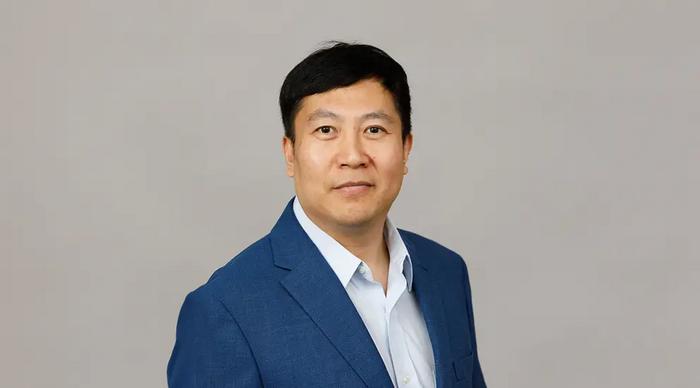MIAMI, FLORIDA (July 25, 2024) – Many people with stage II or III colon cancer receive additional, or adjuvant, chemotherapy following surgery. However, clinical trials have shown that this treatment doesn’t improve the chances of survival for every patient. A study published July 25 in Cell Reports Medicine identifies and validates a 10-gene biomarker that potentially predicts whether a stage II or III colon cancer patient will benefit from adjuvant chemotherapy.

Credit: Photo by Sylvester
MIAMI, FLORIDA (July 25, 2024) – Many people with stage II or III colon cancer receive additional, or adjuvant, chemotherapy following surgery. However, clinical trials have shown that this treatment doesn’t improve the chances of survival for every patient. A study published July 25 in Cell Reports Medicine identifies and validates a 10-gene biomarker that potentially predicts whether a stage II or III colon cancer patient will benefit from adjuvant chemotherapy.
A secondary finding from the study could also lead to further research and application. Researchers found that the gene signature could potentially also predict whether immunotherapy would help some patients – important because there are not yet clear guidelines on which colon cancer patients might benefit from immunotherapy.
The study, led by Steven Chen, Ph.D., a researcher at the Sylvester Comprehensive Cancer Center at the University of Miami Miller School of Medicine, lays the foundation for further research that could someday allow patients and their doctors to make personalized treatment decisions.
“When you’re talking about precision oncology, it means you use an individual patient’s information — here we are particularly talking about biomarkers from the patient — to guide the doctor in making a clinical decision about what kind of treatment is best for the patient,” Chen said. “Ideally, we only want to apply adjuvant chemotherapy to the patients who will benefit from it. For patients who don’t respond, we still need to find other effective treatments.”
As a data scientist, Chen applies machine learning and artificial intelligence to cancer research, primarily focusing on colorectal and breast cancer.
Scientists have previously found biomarkers that help doctors predict a patient’s survival curve or understand how aggressive a cancer is. These are useful, Chen said, but don’t help guide treatment.
So, he and collaborators at Vanderbilt University and Memorial Sloan Kettering Cancer Center set out to find a gene signature — a specific set of genes whose combined expression patterns can serve as a biomarker — that could.
Colon cancer patients’ tumors have many different genomic profiles, so the team aggregated gene expression profiles from six publicly available sources to create a 933-patient data set, making it one of the largest gene expression datasets for stage 2 and 3 colon cancer.
The team’s data scientists meticulously curated and performed quality control to ensure they could identify an accurate gene signature for predicting responses to chemotherapy.
They also wanted the gene signature to be practical, with a small number of genes. They used machine learning to build a network of thousands of potentially relevant genes, which they narrowed down first to an 18-gene network and then to 10 genes.
Once they were confident the 10-gene network was biologically relevant, they built a model that analyzes the gene signature to predict which patients would benefit from adjuvant chemotherapy.
Next, the team wanted to test their gene signature’s accuracy. Having an interdisciplinary team was crucial to this step, Chen said. “Working closely with surgeons, oncologists and biologists ensures that our findings are robust, clinically relevant and can be effectively translated into practice.”
The team’s data scientists tested the gene signature’s predictive power by comparing it to results from thousands of random five- to 15-gene networks. It was dramatically better at predicting whether a patient would benefit from chemotherapy.
The surgeons and oncologists collected tumor tissue samples from 109 stage 2 and 3 colon cancer patients, along with information about the patients’ responses to adjuvant chemotherapy.
Tests using these samples further verified the model: Patients predicted to benefit from chemotherapy based on the gene signature “had significantly better survival outcomes than those predicted not to benefit,” the study found.
Chen hopes the team’s biomarker will be used to help patients someday, but several more steps are needed before it can be used clinically.
“To be really clinically applicable, we need to go through prospective clinical trials,” he said. “It means we recruit patients and apply this biomarker to see if it’s really effective.”
The study was supported by funding from Sylvester and was motivated by Chen’s goal of translating data science into real-world benefits.
“I hope every research finding we discover can improve clinical decisions and eventually help cancer patients,” he said.
Read more about Sylvester’s research on the InventUM Blog and follow @SylvesterCancer on X for the latest news on its research and care.
# # #
DOI: doi.org/10.1016/j.xcrm.2024.101661
Funding and Author Information: Available in the online article.
Journal
Cell Reports Medicine
Article Title
Discovery and validation of a 10-gene predictive signature for response to adjuvant chemotherapy in stage II and III colon cancer
Article Publication Date
25-Jul-2024
COI Statement
Funding and Author Information is available in the online article.



